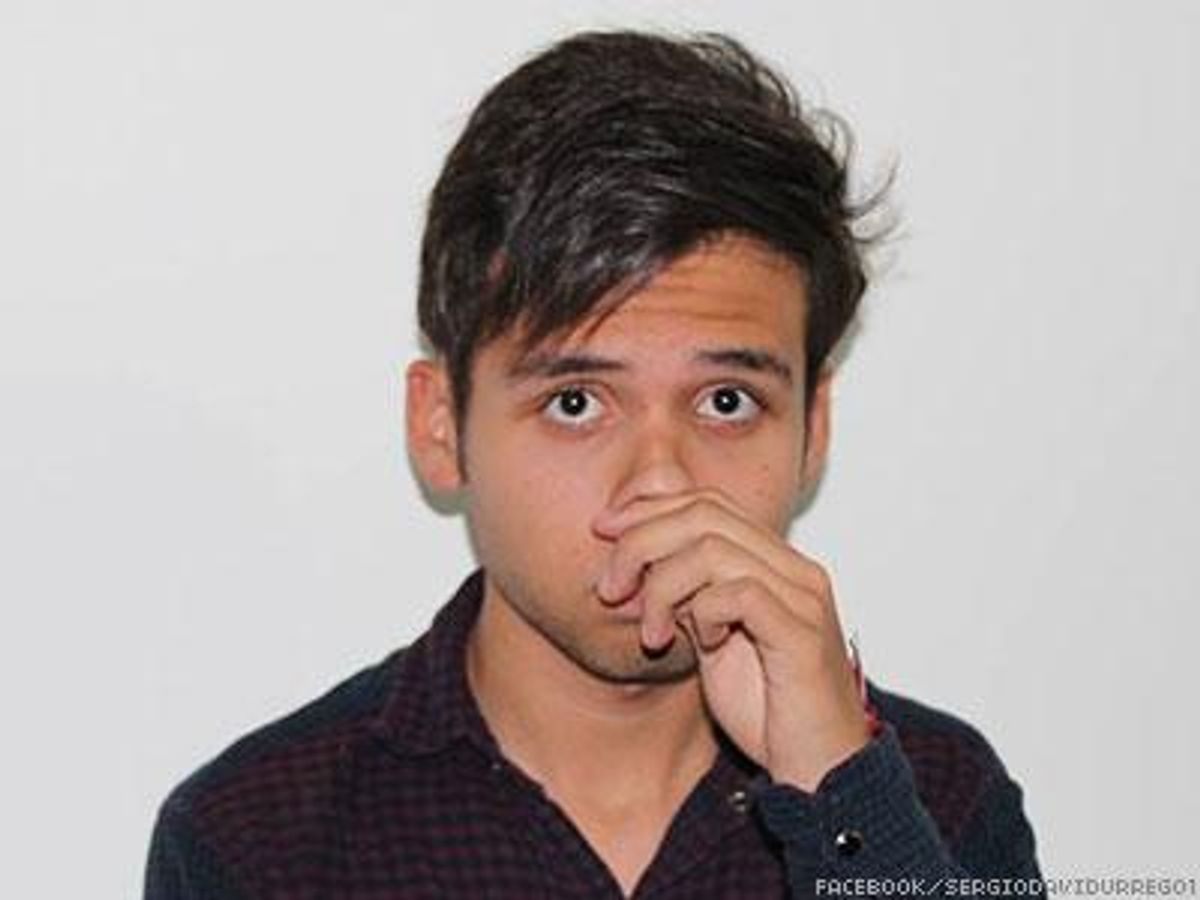Two photos -- one haunting, the other simply poignant -- published separately last weekend by two Spanish-language news organizations tell the story of Colombian society's urgent need to reconcile its religiously conservative culture with acceptance and respect for its LGBT men, women, and children.
The first photo, published by ConfidencialColombia, is of a handsome young Colombian who committed suicide recently, after his teachers and school administrators allegedly harassed him because he was gay. Sergio Urrego was just 16 years old when he took his life.
The second photo, published by El Spectador, shows Urrego's mother, Alba Reyes, with solemn eyes narrowed to a point of focus that only mothers of lost children know. She is holding a photo of her son, flanked by her and an older woman.
According to the Washington Blade, Urrego died last month after reportedly being discriminated against by administrators and a teacher at his high school who saw a cell phone photo of him kissing his boyfriend.
GLAAD reports that upon learning of the cell phone photo, the school's principal called a meeting of students and teachers to announce that Urrego was an "anarchist," an "atheist," and a "homosexual."
As his family mourns, LGBT activists in Colombia are demanding action against those responsible for the alleged harassment at Gimnasio Castillo Campestre, a Catholic school that Urrego attended for six years.
It is unclear what actions, if any will, be taken against the school and those involved in the alleged abuse. El Espectador notes that Urrego and his parents had requested meetings with school and district officials to discuss the antigay harassment Urrego was enduring at the hands of those who were paid to educate and protect him, but school officials claimed Urrego's problems were based at home, with parents who did not accept his sexual orientation.
The appalling incident stands in sharp contrast to more positive developments for LGBT Colombians that made headlines recently.
While some courts in Colombia have been pushing the envelope toward greater acceptance of LGBT people, Colombian society -- with 90 percent of the population identifying as Catholic -- has lagged behind the law. In 2011, marriage equality was granted by default when Congress failed to pass a law to give same-sex couples their own, separate-but-equal version of marriage before a deadline imposed by the country's Constitutional Court passed.
But even Luis Ernesto Vargas, presiding judge on Colombia's Constitutional Court, who has decided cases in favor of LGBT equality, warns against pushing society too hard or too fast.
"You can't force society to take a giant leap," aNew York Times editorial quoted Vargas as saying. The editorial lauded the court's landmark decision granting a lesbian couple joint guardianship of one partner's biological child.
Advocates fighting for LGBT rights on the ground say the only way to prevent the kind of bullying Urrego suffered is to stand up to it.
"Antigay bullying and anti-LGBT hate are still far too common in Latin America and the rest of the world," wrote Monica Tresandes, director of Spanish-language media at GLAAD, in an article about the recent suicide. Tresandes urges anyone who would like to express support for Urrego and his family to participate in GLAAD's October 16 #spiritday campaign against bullying.
Someone in the world dies via suicide every 40 seconds. Get help or learn more about preventing suicide at the National Suicide Prevention Lifeline: 1-800-273 TALK (8255). If you or someone you love is an LGBT youth struggling with depression or thoughts of suicide, contact the Trevor Project's Trevor Lifeline at 1-866-488-7386. Finally, watch the World Health Organization's video (below) about how suicide affects those left behind:

















































































